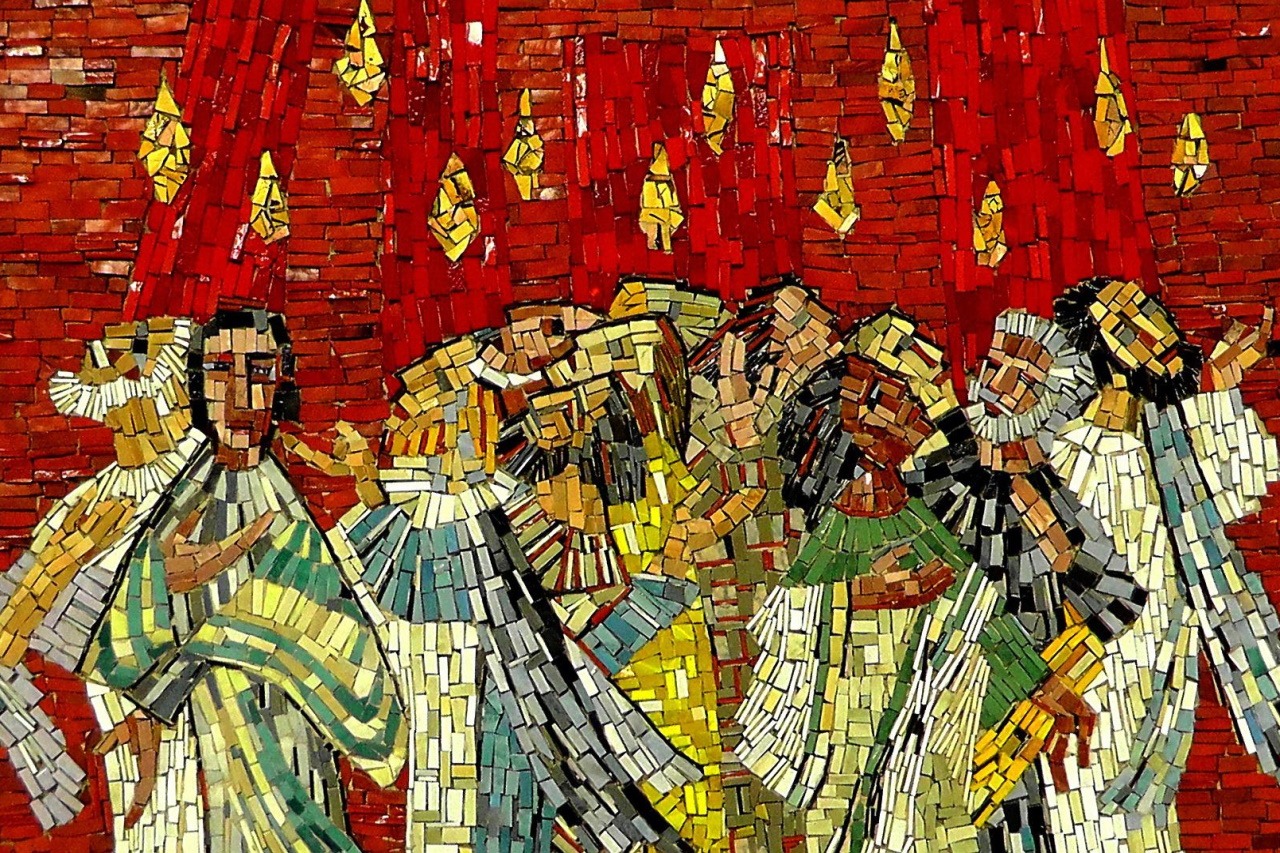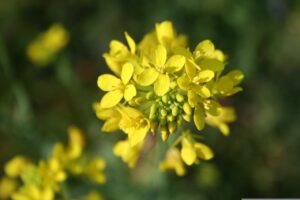Acts 2: 1-11 (RM) or 1-21 (RCL); Psalm 104; 1 Corinthians 12: 3b-7, 12-13 or Romans 8: 8-17 (RM) or 14-17 (RCL); John 20: 19-23 or John 14: 15-16, 23b-26 RM) or John 14: 8-17 (RCL).
One sunny day I stepped off the ferryboat after a pleasant crossing, walked up the pier, looked around – and suddenly my brain went, “Aaahh!” and my whole body relaxed. What happened? I had been living in Belgium for eight months at that point, and every step on the streets or in the shops surrounded me with Flemish, or sometimes French. Now, the street signs, shop windows and everything written or spoken around me was in my own language. I was in England. Aaaahh.
In that crowd described by Luke in our first reading you just had to hear that instant of collective Aaaahh, followed by “Wait, what? Who are these people speaking our languages? They’re from here. We’re from everywhere!”
Both our first reading from Acts and the Gospel from John purport to tell a story of how the Holy Spirit that Jesus had promised came among his followers. But the stories are completely different. In the Gospel of John the Spirit is conferred as delegated power by the risen Christ to a small select group of fearful disciples locked in an upper room. Their language was, presumably, Aramaic.
But Luke, writing a generation earlier, tells a unique and absolutely brilliant story that turns precisely on the power of language. Some commentators think Luke wrote his story in a way that deliberately reversed the curse of the Tower of Babel in Genesis 11, in which a sudden diversity of languages divides people from each other and thwarts their ability to work together. Now, tongues of fire, fire which classically symbolizes the appearance of the divine, descend upon a gathered crowd of up to 120 people (see Acts 1:15). The Greek text uses gender-neutral terms so this was not just a cadre of male disciples – it could be anybody. And they rushed out and started speaking – what?
Now this was not the “speaking in tongues” to which Paul refers when he says there should be someone present who can interpret the message; nor is it the speaking in tongues characteristic of the charismatic movement of the late 1960’s and beyond. The Greek word for that was glossolalia, but the word used here is zenologia, speaking in real, recognizable foreign languages.
In the Babel story, diversity in languages divided and made enemies of coworkers. Now, we may have diversity in languages but a profound unity in the message conveyed, a unity not only in its content, but in the immediate effect of the message. One side of the miracle is in the speaking, but the equal and opposite side is in the hearing. The rich variety of persons and their languages, spoken and understood, converges in a message of harmony, and holiness, a message promising that death and enmity will not have the last word.
And the message is not only for the few, the insiders – the message radiates outward, like the concentric circles spreading forth from a pebble dropped in a pond, radiating out as far as they can go. The entire community turns outward, connected and empowered to proclaim the vision and speak the hope engendered in Christ. The entire universe becomes charged with energy, swirling in a continuous dynamic. In the outpouring of the Spirit the earth is renewed, conflicts are resolved, suffering is soothed, wounds are healed, and injustices set right. And the Spirit suffuses all Being.
I’d like to close with a few phrases from the sequence Veni creator spiritus that precedes the Gospel for Pentecost, translated, and it even rhymes (in places):
“You, of comforters the best
You, the soul’s most welcome guest
Sweet refreshment here below.
In our labour, rest most sweet
grateful coolness in the heat
Solace in the midst of woe.O most blessed Light divine, shine within these hearts of yours
And our inmost being fill.
Heal our wounds, our strength renew
On our dryness pour your dew
Wash the stains of guilt away.
Bend the stubborn heart and will
Melt the frozen, warm the chill.
On the faithful, who adore
and confess you, evermore
In your sevenfold gifts descend
And give them joys that never end.”
© Susan K. Roll
Susan Roll retired from the Faculty of Theology at Saint Paul University, Ottawa, in 2018, where she served as Director of the Sophia Research Centre. Her research and publications are centred in the fields of liturgy, sacraments, and feminist theology. She holds a Ph.D. from the Catholic University of Leuven (Louvain), Belgium, and has been involved with international academic societies in liturgy and theology, as well as university chaplaincy, Indigenous ministry and church reform projects.





I find comfort in your words, and a hope-filled vision: “In the outpouring of the Spirit the earth is renewed, conflicts are resolved, suffering is soothed, wounds are healed, and injustices set right. And the Spirit suffuses all Being.” I pray I may see and participate with Spirit’s action in my life, and in the life of the world.